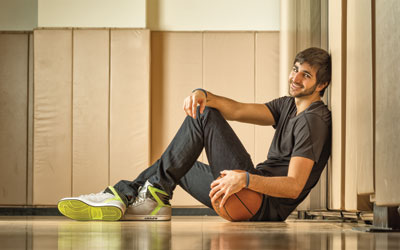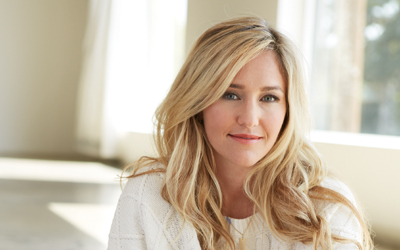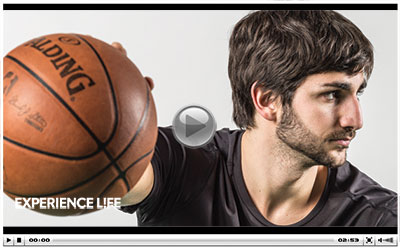On March 9, 2012, the most frightening four seconds in Ricky Rubio’s life resulted in a season-ending injury that was both devastating and, in the minds of many beleaguered Timberwolves fans, strangely apropos.
This was an NBA franchise that has routinely struggled for relevance, after all, and since the departure of superstar Kevin Garnett in 2007, had been especially woeful. Then, in a season shortened by labor disputes, hope arrived from Barcelona, Spain. For 40 games, Rubio played point guard for newly hired coach Rick Adelman and, with the help of power forward Kevin Love, put Minnesota back on the sporting media’s map. There were national magazine covers featuring the now-22-year-old’s infectious grin; regular appearances on ESPN’s highlight reels, where Rubio’s jaw-dropping passes made dunks look pedestrian; and, as the season’s 41st game loomed, analysts were actually predicting a late-season upset of the storied L.A. Lakers.
It seemed too good to be true. Something had to give.
And it did. While Rubio fought with L.A.’s Kobe Bryant to maintain possession in that game’s most intense sequence, his left knee buckled and he tore his ACL and LCL. The Lakers went on to win and, within two weeks, the Timberwolves once again faded into obscurity.
What Wolves enthusiasts couldn’t know then was that Rubio — who started playing pro ball in Spain at age 14 and appeared in the gold medal round of the Beijing Olympics at 17 — was not about to follow their tragicomic script.
Rubio returned to the team in mid-December and, after five games, was slowly “getting his legs back.” The key to his comeback, the EL cover subject said, was forged over the summer, when he learned to turn down his intensity and play it cool. Because while he really wanted to push it hard and fast — and that’s what’s often expected, especially from fans hungry for victories -— impatience doesn’t ensure long-term recovery or success.
And for the first time in a long time, that’s what Ricky Rubio promises to deliver in Minnesota.
EL | Congratulations. You’re back in uniform and starting to get some playing time. How does it feel?
RR | Thanks. It’s exciting to be back. I’m really enjoying basketball again, so that feels good. When I’m on the court, I try not to worry about getting hurt, and that’s something I still have to work on. I mean, you know that the injury’s healed, but it’s hard because you remember how you felt in the moment that you got hurt, how you felt during the recovery, and you don’t want to go through the process again. I just have to be patient.
EL | In the last few days, you’ve been struggling with a back injury. Has that complicated things?
RR | Yeah, the knee is no longer the problem. It’s all the other parts of the body that were also waiting for nine months. And because you don’t want to hurt the knee, you maybe don’t put the feet at the same point, and you hurt your groin or your back. I was told to expect problems, but you don’t always remember that when you’re on the court.
EL | This is the first major injury you’ve had to deal with. What was the toughest part of the process early on?
RR I’ve been playing basketball since I was 4 years old, and all of a sudden I can’t play. I can’t move. And it was not only playing basketball, it was walking and doing things for myself. Then, at a certain point I was feeling like I could do more things than they allowed me to do, and I was like, “I can’t even start walking?” And they said, “Maybe in two more weeks would be better for you.” And that was hard, but they were just being careful. And my goal was to get back on the court healthy, and I knew that if I was pushing too much, I might not be able to play basketball again. So I took it seriously. I had to focus. And I had to trust my trainers — to know that they’re doing what’s best for me.
EL | Who did you lean on when things were tough? What did your support system look like?
RR | [With the team] it’s between the doctors, the trainers and the physical therapists. They all work together and put their thoughts together to get the best results. That’s important: that everyone talks to one another. And then it just depends on what you feel. For example, I just hurt my back so I’ve been working on my core for three or four days with the athletic trainer. Just the core; forget about the knee, because it’s my back that hurts now.
Away from basketball, I have a couple of friends who came to visit. My mom was here. They helped me to not think about the knee. We played table games, different card games and PlayStation, or we just went out. I was trying to do the same things I was doing when I was healthy. I knew I couldn’t walk without crutches, but I was playing with my friends, and when we went out they would carry me in a wheelchair. So it was like, find the positive thing in the bad thing.
So many people were there to help me, and I’m never going to forget that. All I can say is thank you. They kept me up, and that was awesome.
EL | Were you able to talk with other players who have had similar injuries? Did they have any advice for you?
RR | Yeah, I talked with a lot of them, and all of them told me the same thing: “Be patient.” It’s something that if you rush — and some of them rushed it — you get hurt again. They told me that if you really take care and work hard, you can play for a long time.
EL | Now that you’ve been through this, what advice would you have for someone who gets injured?
RR | First of all, if it’s something serious, you have to treat it like something serious. Because if you don’t pay attention, if you don’t work hard on your rehab, it’s something you’ll regret the rest of your life. At the same time, you have to find a way to make it fun. I mean I know it’s not fun to get hurt, but you have to turn things into a positive. You can set new goals to reach, and when you reach them, celebrate.
Of course, anyone with a serious injury who tells you that you won’t get down, I think he lies. At some point you’re going to get down. That’s why it’s hard, because it’s something really painful, not only physically, but also mentally. But in those moments, you’re going to grow up. There’s ups and downs. It’s something that you have to take step by step. Don’t rush it. Take it slow and easy.
EL | What are your goals for the rest of the season?
RR | My dad always said that the day you think you know enough, it’s the day you’re going to stop learning. So I always try to improve. I always try to do things better than I did the day before.
As a team, I think we have a chance to make the playoffs. So that’s what’s most important: to help the team reach a goal they haven’t reached in Minnesota for a long time.
Go Behind the Scenes with Ricky Rubio.
This article originally appeared as “Patience & Positivity” in the March 2013 print edition of Experience Life.




This Post Has 0 Comments